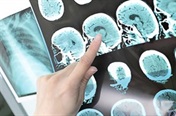
Stroke
iStock
Some risk factors for having a stroke can be controlled and managed, others not.
Controllable risk factors
• High blood pressure: It is estimated that approximately 40% of strokes can be attributed to high blood pressure (hypertension). Apart from the increased risk of bleeding, the walls of arteries that have been weakened by continuous high blood pressure are more susceptible to atherosclerosis. This is the build-up of a plaque of fatty deposits in the arteries. Diet, exercise and weight loss are the first steps in controlling high blood pressure.
• Smoking: A smoker has a 50% greater chance of suffering a stroke, because smoking encourages the build-up of a plaque of fatty deposits in the arteries. Smoking also makes the blood clot faster and, because the nicotine in tobacco constricts arteries, it increases the heart rate and blood pressure, making the smoker’s heart work much harder than non-smokers’ hearts do. Only after smokers have stopped smoking for 10 years does their risk of having a stroke become reduced to equal that of non-smokers.
• Cardiovascular disease: Several heart conditions increase a person’s risk of having a stroke, because the heart does not pump blood efficiently enough, which leads to pooling and clotting of the blood. These conditions include a previous heart attack causing congestive heart failure, heart-valve disease and irregular, rapid heartbeat (such as atrial fibrillation).
• Transient ischaemic attack: Although a TIA lasts only a few minutes and leaves no permanent damage, between 15 and 20% of people who have a stroke previously had one or more TIAs.
• Diabetes: This chronic disease doubles a sufferer’s risk of having a stroke because it increases the severity of atherosclerosis. Diabetes also interferes with the breakdown of a blood protein called fibrin, which forms and holds blood clots together.
• Obesity
• Use of stimulant drugs (amphetamines and cocaine)
• High levels of low-density lipoprotein (LDL) cholesterol: High LDL cholesterol levels increase the risk of atherosclerosis.
• Polycythaemia (high levels of red blood cells)
• Other causes: Damage to arteries, blood conditions such as sickle cell anaemia and migraines increase stroke risk. Women who get migraines, smoke and take oral contraceptives have an increased risk of having a stroke, although stroke caused by migraine is extremely rare.
Uncontrollable risk factors
• Age: The older you get, the greater the risk of having a stroke. About 75% of all people who have a stroke are older than 65 years.
• Family history is another factor that cannot be changed; the risk of having a stroke is greater if a family member has had a stroke or TIA of any cause.
(Reviewed by Dr J. Carr, FCP(SA) Neurology, MSc(Med))
Controllable risk factors
• High blood pressure: It is estimated that approximately 40% of strokes can be attributed to high blood pressure (hypertension). Apart from the increased risk of bleeding, the walls of arteries that have been weakened by continuous high blood pressure are more susceptible to atherosclerosis. This is the build-up of a plaque of fatty deposits in the arteries. Diet, exercise and weight loss are the first steps in controlling high blood pressure.
• Smoking: A smoker has a 50% greater chance of suffering a stroke, because smoking encourages the build-up of a plaque of fatty deposits in the arteries. Smoking also makes the blood clot faster and, because the nicotine in tobacco constricts arteries, it increases the heart rate and blood pressure, making the smoker’s heart work much harder than non-smokers’ hearts do. Only after smokers have stopped smoking for 10 years does their risk of having a stroke become reduced to equal that of non-smokers.
• Cardiovascular disease: Several heart conditions increase a person’s risk of having a stroke, because the heart does not pump blood efficiently enough, which leads to pooling and clotting of the blood. These conditions include a previous heart attack causing congestive heart failure, heart-valve disease and irregular, rapid heartbeat (such as atrial fibrillation).
• Transient ischaemic attack: Although a TIA lasts only a few minutes and leaves no permanent damage, between 15 and 20% of people who have a stroke previously had one or more TIAs.
• Diabetes: This chronic disease doubles a sufferer’s risk of having a stroke because it increases the severity of atherosclerosis. Diabetes also interferes with the breakdown of a blood protein called fibrin, which forms and holds blood clots together.
• Obesity
• Use of stimulant drugs (amphetamines and cocaine)
• High levels of low-density lipoprotein (LDL) cholesterol: High LDL cholesterol levels increase the risk of atherosclerosis.
• Polycythaemia (high levels of red blood cells)
• Other causes: Damage to arteries, blood conditions such as sickle cell anaemia and migraines increase stroke risk. Women who get migraines, smoke and take oral contraceptives have an increased risk of having a stroke, although stroke caused by migraine is extremely rare.
Uncontrollable risk factors
• Age: The older you get, the greater the risk of having a stroke. About 75% of all people who have a stroke are older than 65 years.
• Family history is another factor that cannot be changed; the risk of having a stroke is greater if a family member has had a stroke or TIA of any cause.
(Reviewed by Dr J. Carr, FCP(SA) Neurology, MSc(Med))




 Publications
Publications
 Partners
Partners












